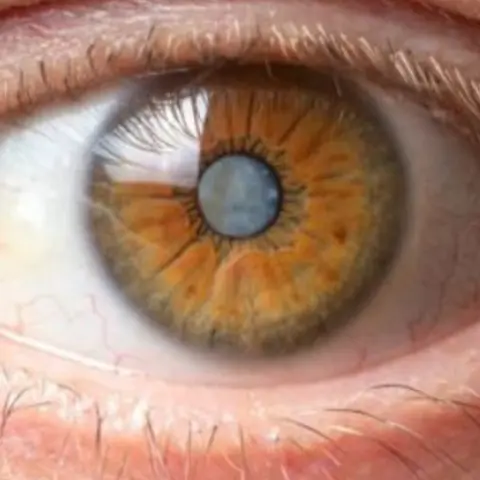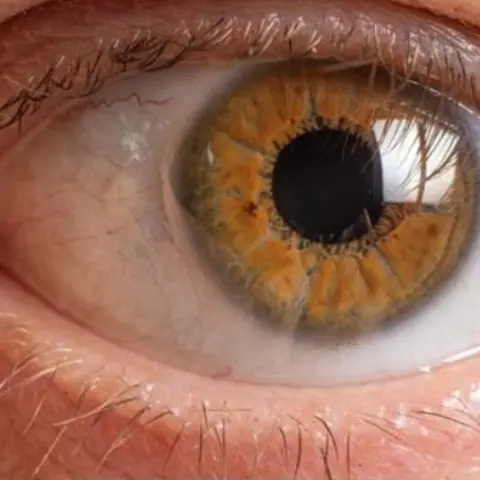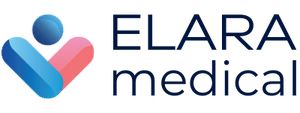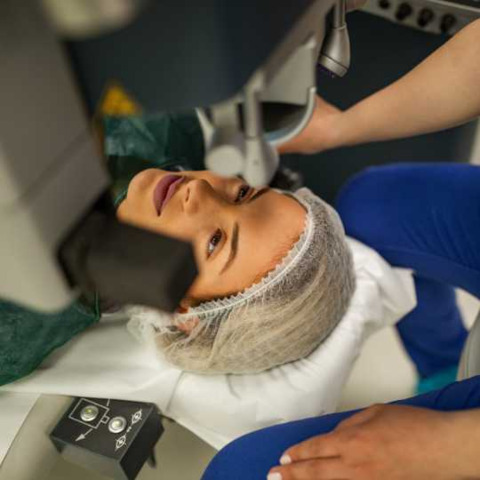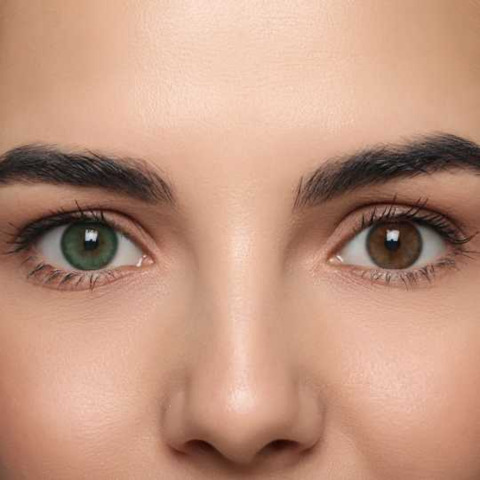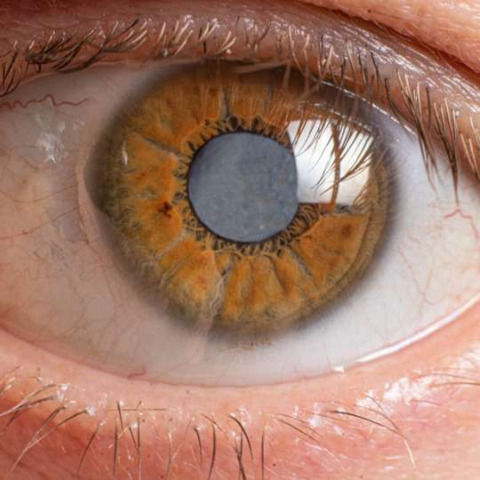

Cataract surgery, also known as lens replacement surgery, is a procedure to remove the cloudy natural lens of the eye and replace it with an artificial intraocular lens (IOL). Cataracts are a common age-related condition where the lens of the eye becomes progressively cloudy, causing blurry vision, glare, and reduced contrast sensitivity.
Cataracts are the result of proteins within the lens clumping together, leading to cloudiness. Over time, this cloudiness can impair vision and interfere with daily activities. Cataract surgery aims to restore clear vision by removing the affected lens and replacing it with an artificial one, which remains transparent and allows light to pass through, improving the patient's vision. The term "lens replacement surgery" is used interchangeably with cataract surgery because the primary objective of the procedure is to replace the clouded lens with a new, artificial one.
Pros of cataract surgery:
- Safe and effective: Cataract surgery is highly successful, with about a 95% effectiveness rate. Most people experience improved vision almost immediately after the procedure.
- Quick recovery: Recovery from cataract surgery typically takes only a few days, allowing patients to resume their normal activities quickly.
- Long-lasting results: The artificial lenses used in cataract surgery are designed to last a lifetime, providing long-term vision improvement.
- No need to rush: Patients can take their time in deciding when to have cataract surgery, as waiting does not typically worsen the condition or make the surgery more difficult.
- Minor complications: Any complications that arise from cataract surgery are usually minor and can be successfully treated.
- Age is not a factor: Cataract surgery can be performed on patients of any age, ensuring that everyone can benefit from improved vision.
- No cataract regrowth: Once the cataract is removed, it cannot grow back.
- Rare need for revision: The need to revise a cataract procedure is rare, as most surgeries are successful the first time.
Cons of cataract surgery:
- Staged surgery for both eyes: If you have cataracts in both eyes, surgery is typically performed on one eye first, followed by the other eye a few days or weeks later.
- Potential for cloudy capsule: In up to half of the cases, the capsule left behind to hold the implant in place may become cloudy, causing vision to become blurry again. This "second cataract" can be treated with a minor laser procedure.
- Post-surgery vision correction: After cataract surgery, you may need new glasses or contact lenses to achieve optimal vision.
Cataracts are primarily caused by the natural aging process, which leads to changes in the proteins and fibers within the eye's lens, resulting in the lens becoming cloudy. Other factors can contribute to the development of cataracts, including:
- Medical conditions: Diabetes, hypertension, and obesity can contribute to cataract formation.
- Lifestyle factors: Smoking, excessive alcohol consumption, and prolonged exposure to sunlight without eye protection can increase the risk of cataracts.
- Eye injuries or surgeries: Trauma or previous eye surgeries can lead to the development of cataracts.
- Medications: The long-term use of certain medications can cause cataracts.
The symptoms of cataracts can vary depending on the severity and type of cataract. Common symptoms include:
- Blurry or cloudy vision
- Difficulty seeing at night or in low-light conditions
- Increased sensitivity to glare, especially from oncoming headlights or bright sunlight
- Colors appearing faded or less vibrant
- Frequent changes in eyeglass or contact lens prescription
- Seeing halos around lights
- Double vision in the affected eye
As cataracts progress, these symptoms typically worsen, impacting daily activities such as driving, reading, or recognizing faces.
You may be a good candidate for cataract surgery in Turkey if:
- Your cataracts are significantly affecting your vision: If your cataracts have progressed to the point where they are causing blurred vision, glare, difficulty reading, or trouble seeing at night, it might be time to consider surgery.
- Your daily activities are impacted: If your cataracts are causing you to struggle with everyday activities such as driving, reading, watching TV, or using a computer, this could be a sign that surgery is necessary.
- Glasses or contact lenses are no longer sufficient: If you have tried changing your glasses or contact lens prescription, but your vision is still impaired due to cataracts, surgery may be the best option for you.
- Your eye health is stable: You should have stable eye health without any other significant eye conditions that could complicate the surgery or recovery process. Your eye doctor will evaluate your overall eye health before recommending cataract surgery.
- Your overall health is good: While age is not a determining factor for cataract surgery, your overall health should be good enough to undergo the procedure. Any serious health conditions should be discussed with your doctor before proceeding with surgery.
It is essential to consult with an eye doctor to determine if cataract surgery is the right choice for you. They will assess your vision, eye health, and overall health to ensure that the procedure is the best option for improving your vision.
Cataract surgery, also known as lens replacement surgery, is a safe and effective procedure that typically takes about 15-45 minutes per eye. It is performed under local anesthesia, ensuring that you are comfortable and pain-free during the surgery.
During the surgery, the following steps are taken:
1. Anesthetic: Your eye surgeon will administer local anesthesia in the form of eye drops or an injection around the eye to numb the area. You may also be given a mild sedative to help you relax.
2. Incision: The surgeon will make a small incision on the cornea (the transparent front part of the eye). This incision allows access to the lens capsule that holds the cloudy lens (cataract).
3. Lens removal: Using a technique called phacoemulsification, the surgeon inserts a tiny probe through the incision. The probe emits ultrasound waves to break up the cloudy lens into small fragments, which are then gently suctioned out of the eye.
4. Artificial lens implantation: Once the cataract is removed, the surgeon will insert a clear, artificial intraocular lens (IOL) into the empty lens capsule. This new lens will replace the cloudy lens and help to restore your vision.
5. Closing the incision: In most cases, the incision is self-sealing and does not require stitches. However, if necessary, the surgeon may place a small stitch to close the incision.
Cataract surgery is considered a safe procedure, with a success rate of around 95%. As with any surgery, there are potential risks and complications, such as infection, inflammation, or retinal detachment. However, these complications are rare and can usually be treated successfully if detected early.
There are several types of intraocular lenses (IOLs) available in Turkey. Each type serves a different purpose and may be more suitable for specific eye conditions or patient preferences. Some common types of IOLs include:
- Monofocal IOLs: These lenses provide clear vision at a single distance, either near or far. Patients may still require glasses for other distances after surgery. Monofocal IOLs are the most basic and commonly used type of lens.
- Multifocal IOLs: These lenses provide clear vision at multiple distances, such as near, intermediate, and far. They reduce the need for glasses or contact lenses after surgery, although some patients may still need reading glasses for very close-up tasks.
- Accommodating IOLs: These lenses mimic the eye's natural ability to adjust focus between near and far distances. They provide a greater range of vision than monofocal IOLs, but not as broad as multifocal IOLs.
- Toric IOLs: These lenses are designed specifically for patients with astigmatism. Toric IOLs correct astigmatism and provide clear distance vision, but patients may still require reading glasses for near vision.
- Extended depth of focus (EDOF) IOLs: These lenses provide an extended range of clear vision compared to monofocal IOLs, without the drawbacks associated with multifocal IOLs, such as halos and glare.
Determining the "best" intraocular lens for a patient depends on their individual needs, preferences, and eye conditions. Factors such as the patient's lifestyle, vision goals, and any pre-existing eye conditions should be considered when selecting the most suitable IOL. An experienced ophthalmologist will evaluate a patient's specific situation and recommend the most appropriate IOL to achieve the best possible results.
Laser cataract surgery, also known as femtosecond laser-assisted cataract surgery (FLACS), is a more advanced and modern approach to cataract surgery. While traditional cataract surgery involves manual incisions and the use of ultrasound to break up the lens, laser cataract surgery employs a femtosecond laser to perform these steps.
Here are some differences between the two:
- Incisions: In traditional cataract surgery, the surgeon creates the incision using a blade, while in laser cataract surgery, a femtosecond laser creates precise incisions without a blade.
- Lens fragmentation: In traditional surgery, phacoemulsification uses ultrasound waves to break up the lens. In laser cataract surgery, the femtosecond laser is used for lens fragmentation, which can reduce the amount of ultrasound energy required.
- Astigmatism correction: Laser cataract surgery allows for more precise correction of astigmatism, as the laser can create precise incisions in the cornea to reshape it.
As for safety and outcomes, both traditional and laser cataract surgery have high success rates, with over 95% of patients experiencing improved vision. However, some studies suggest that laser cataract surgery may have slightly lower complication rates and faster recovery times. It is essential to note that laser cataract surgery may not be suitable for all patients, depending on factors such as the type and severity of the cataract or other eye conditions.
Ultimately, the choice between traditional and laser cataract surgery depends on various factors, including the patient's specific needs, the surgeon's expertise, and the available equipment. It's crucial to have a thorough consultation with your eye surgeon to determine the most suitable approach for your particular situation.
After cataract surgery, the recovery process is generally straightforward and relatively quick. Most patients experience improved vision within a few days, but complete recovery can take a few weeks. Here's what to expect during the recovery period:
- Immediately after surgery, you may experience mild discomfort, itching, or mild redness in the operated eye. These symptoms are normal and should improve within a day or two.
- You might have blurry vision for a few hours or days, but it will gradually improve as your eye adjusts to the new intraocular lens (IOL).
- You will need to use eye drops prescribed by your surgeon to prevent infection and reduce inflammation. It's essential to follow the medication schedule and any additional instructions provided by your doctor.
- Avoid rubbing or putting pressure on your eye. You may be advised to wear a protective shield or eyeglasses to protect your eye during the initial recovery period.
- Your doctor will schedule follow-up appointments to monitor your progress and ensure proper healing.
It's essential to follow your surgeon's instructions to ensure a smooth recovery and reduce the risk of complications. The results of cataract surgery are typically long-lasting, with the new artificial lens providing clear vision for a lifetime. However, some patients may experience a secondary cataract or posterior capsule opacification (PCO), which can be treated with a simple and quick laser procedure called YAG laser capsulotomy.
The cost of cataract surgery varies depending on the country, the type of intraocular lens (IOL) used, and the surgeon's fees. In general, cataract surgery is more affordable in Turkey compared to Western Europe and the USA. Keep in mind that prices are subject to change and may vary between individual clinics and providers.
In Turkey, the average cost of cataract surgery ranges from $1,500 to $2,000 per eye. This price typically includes the surgeon's fees, facility fees, and the cost of the IOL.
In comparison, the average cost of cataract surgery in Western Europe ranges from $3,000 to $4,000 per eye, while in the USA, the cost can be even higher, ranging from $3,500 to $4,500 per eye or more.
Choosing Elara Medical Tourism for your cataract surgery in Turkey offers several advantages, including:
1. Personalized approach: We understand that each patient's needs and preferences are unique. Our team works closely with you to design a customized treatment plan that caters to your specific requirements and expectations.
2. Access to top facilities and surgeons: We partner with some of the best hospitals and clinics in Turkey, ensuring that you receive high-quality care from experienced and skilled surgeons who specialize in cataract surgery.
3. Cost savings: Turkey is known for its affordable healthcare, and we can help you find competitive prices for cataract surgery without compromising on quality. Compared to Western Europe and the USA, you can save a significant amount on your procedure.
4. Comprehensive care coordination: From the moment you contact us to the completion of your treatment, we will be with you every step of the way. Our team will assist with travel arrangements, accommodations, and any necessary appointments or follow-up care, ensuring a seamless experience throughout your medical journey.
5. Assistance with travel and logistics: As experts in medical tourism, we can help you navigate the visa process, book flights, and arrange accommodations in Turkey, allowing you to focus on your health and recovery.
6. Patient safety and satisfaction: Your safety and satisfaction are our top priorities. We are committed to providing you with the best possible experience, and our team is always available to address any concerns or questions you may have.
Choosing Elara Medical Tourism for your cataract surgery in Turkey means you'll receive personalized, professional, and compassionate care, making your medical journey as smooth and successful as possible.
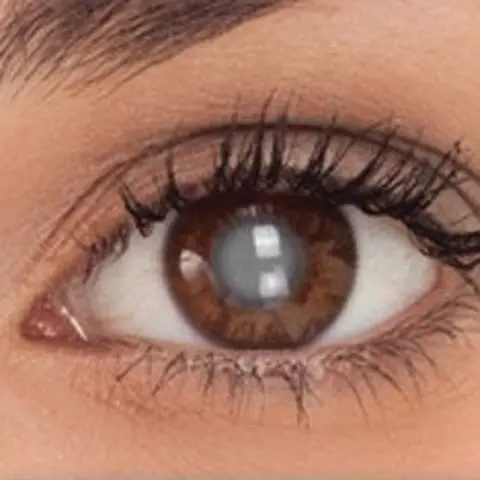
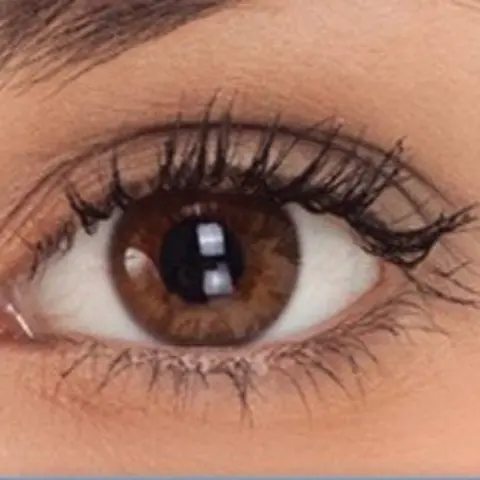
Geting rid of Cataract after a succesful eye surgery
